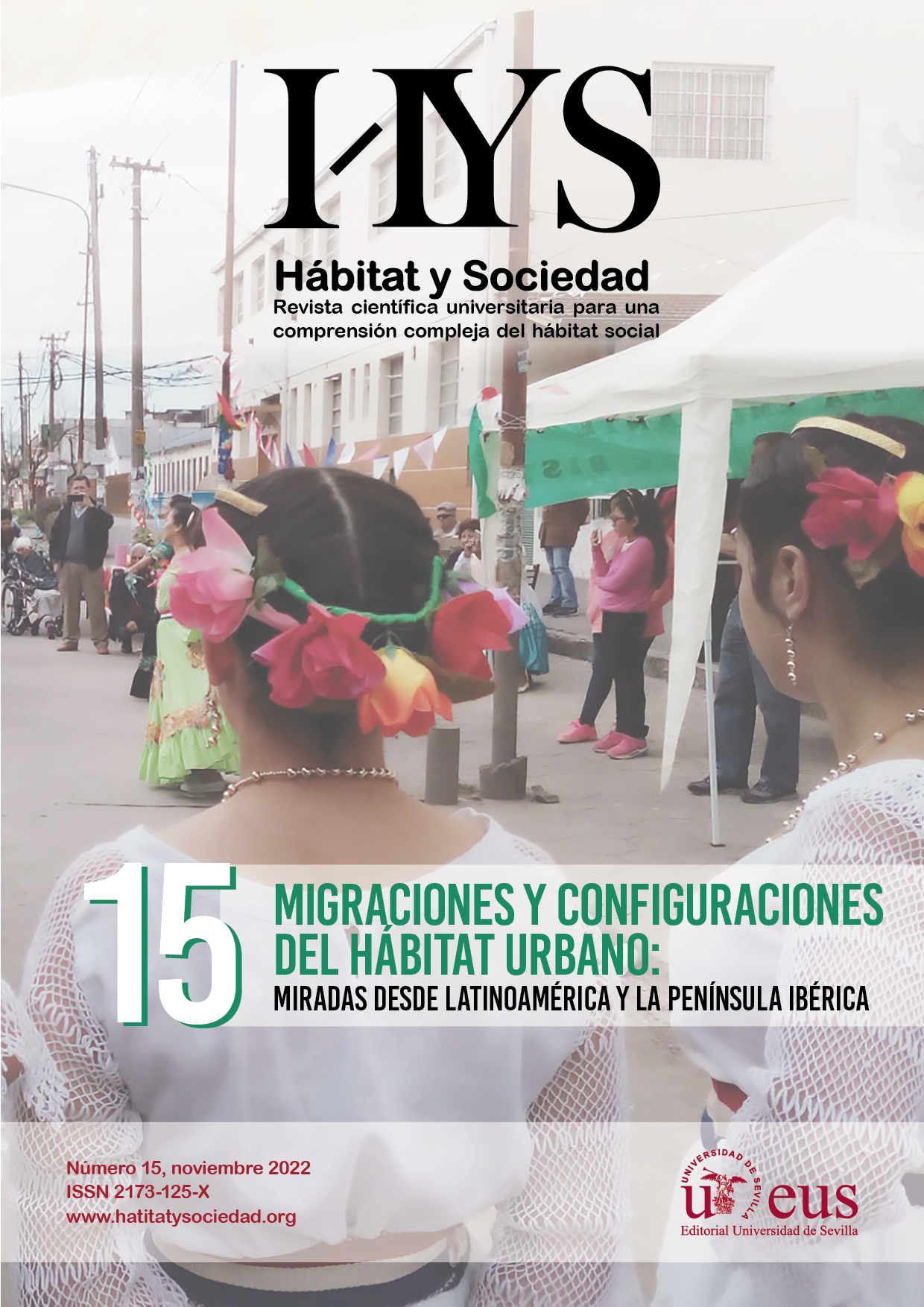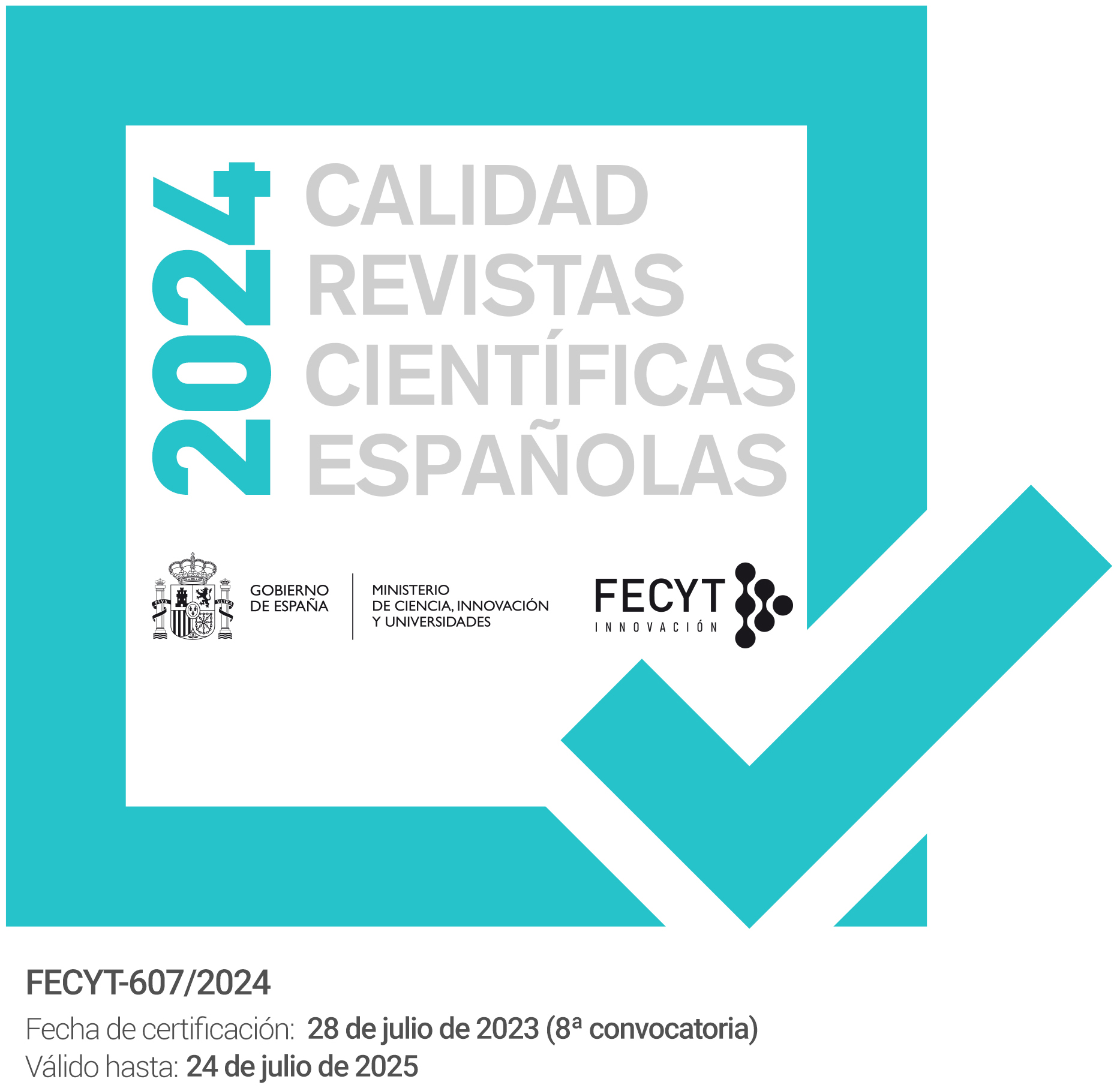Retos de la transición ecológica justa para la planificación hidrológica. El caso del Plan de la demarcación del Guadalquivir (tercer ciclo 2022-2027)
DOI :
https://doi.org/10.12795/HabitatySociedad/2022.i15.06Mots-clés :
Gestión del agua, Transición hídrica, Cambio climático, Gobernanza, GuadalquivirRésumé
Tras 22 años de vigencia de la Directiva Marco del Agua (DMA), en la totalidad de los países de la Unión Europea se están aprobando los nuevos planes de gestión de cuencas hidrográficas, correspondientes al tercer ciclo de planificación (2022-2027). En todos ellos se aplica un marco común de objetivos, metodología, escala territorial y calendario que en nuestro caso se concreta en la cuenca del Guadalquivir. Siguiendo la metodología de análisis aplicada por el Observatorio de la Políticas Públicas del Agua (OPPA) desde el primer ciclo de planificación en toda España, identificamos en nuestro caso, ente otros, los siguientes problemas: un nivel de deterioro del estado de las masas de agua superior al que se reconoce; la sobreestimación de los recursos naturales en el contexto del cambio climático; imprecisiones sobre los datos de demanda agraria; desatención a los problemas ecológicos, sociales y territoriales de la intensificación de cultivos; y análisis de alternativas con soluciones preconcebidas. Como principales conclusiones, desembocamos en la necesidad de reconceptualizar el estrés hídrico permanente, dejando de confundirlo con la sequía extraordinaria e, inevitablemente, en la necesidad de superar, o al menos reducir, los crónicos déficits de gobernanza.
Téléchargements
Références
Aguilar Alba, Monica y Del Moral Ituarte, Leandro (2008). Evolución de las aportaciones en embalses de cabecera del Guadalquivir: relación con las tendencias climáticas recientes y repercusión en la planificación hidrológica. En VI Congreso Ibérico sobre Gestión y Planificación del agua, Fundación Nueva Cultura del Agua, Universidad del País Vasco, Vitoria-Gasteiz. Recuperado el 21 de enero de 2022 de: https://idus.us.es/bitstream/handle/11441/30486/Evoluci%c3%b3n%20de%20las%20aportaciones%20en%20embalses%20de%20cabecera%20del%20Guadalquivir.pdf?sequence=1&isAllowed=y
Aguilar Alba, Mónica y Del Moral Ituarte, Leandro (2011). Análisis y valoración del tratamiento del cambio climático en el proyecto de plan hidrológico de la Demarcación del Guadalquivir. En VII Congreso Ibérico sobre Gestión y Planificación de Aguas. Fundación Nueva Cultura del Agua, Universidad de Castilla-La Mancha, Talavera de la Reina (Toledo). Recuperado el 26 de febrero de 2022 de: https://www.researchgate.net/publication/298824767_ANALISIS_Y_VALORACION_DEL_TRATAMIENTO_DEL_CAMBIO_CLIMATICO_EN_EL_PROYECTO_DE_PLAN_HIDROLOGICO_DE_LA_DEMARCACION_DEL_GUADALQUIVIR/link/56ece52008aea35d5b9869f3/download
Boeuf, Blandine y Fritsch, Oliver. (2016). Studying the implementation of the Water Framework Directive in Europe: A meta-analysis of 89 journal articles. Ecology and Society, 21(2), 19. DOI: http://dx.doi.org/10.5751/ES-08411-210219.
Castillo Martín, Antonio (2021, 30 de julio). Los Santuarios del Agua, en peligro de extinción. Paisajes del Agua. Recuperado el 21 de enero de 2022 de: https://paisajesdelagua.es/los-santuarios-del-agua-en-peligro-de-extincion/
Confederación Hidrográfica del Guadalquivir (2019). Plan Hidrológico de la Demarcación Hidrográfica del Guadalquivir. Revisión de tercer ciclo (2021-2027). Documentos iniciales del tercer ciclo de planificación hidrológica (2021-2027) – Informe resumen del proceso de Participación Pública, septiembre 2019. Sevilla. Recuperado el 21 de enero de 2022 de: https://www.chguadalquivir.es/tercer-ciclo-guadalquivir
Confederación Hidrográfica del Guadalquivir (2020). Esquema Provisional de temas importantes, Plan Hidrológico de la Demarccaión del Guadalquivir, tercer ciclo 2021-2027.Sevilla. Recuperado el 21 de enero de 2022 de: https://www.chguadalquivir.es/tercer-ciclo-guadalquivir
Confederación Hidrográfica del Guadalquivir (2021) Borrador del Plan Hidrológico de la Demarccaión del Guadalquivir, tercer ciclo 2021-2027. Sevilla. Recuperado el 21 de enero de 2022 de: https://www.chguadalquivir.es/tercer-ciclo-guadalquivir
Custodio, Emilio, Manzano, Marisol y Montes, Carlos (2002). Las aguas subterráneas en Doñana: Aspectos ecológicos y sociales, Sevilla: Junta de Andalucía-Consejera de Medio Ambiente. Recuperado el 3 de febrero de 2022 de: https://www.juntadeandalucia.es/medioambiente/web/Bloques_Tematicos/agencia_andaluza_agua/participacion/publicaciones/libro_donana_baja.pdf
Del Moral Ituarte, Leandro (2011). El nuevo Plan Hidrológico de la Demarcación del Guadalquivir: avances y dificultades en el proceso de cambio de modelo de gestión del agua. Hábitat Y Sociedad, 2, 187-196. DOI: https://doi.org/10.12795/HabitatySociedad.2011.i2.10
Europa Press (2008, 12 de diciembre). Feragua señala que el Acuerdo Andaluz por el Agua, en su redacción actual, no garantiza el principio de unidad de cuenca. Recuperado el 21 de enero de 2022 de: https://hispagua.cedex.es/documentacion/noticia/50460
González Rojas, David (2018). La gestión de las cuencas hidrográficas en España: avances y carencias del segundo ciclo de planificación. Agua Y Territorio / Water and Landscape, 11, 123-136. DOI: https://doi.org/10.17561/at.11.3027
Kaika, Maria (2003). The Water Framework Directive: A new directive for a changing social, political and economic European framework. European Planning Studies, 11(3), 299-316. DOI: https://doi.org/10.1080/09654310303640
Kaika, Maria y Page, Ben (2003). The EU water framework directive: Part 1. European policy-making and the changing topography of lobbying. European Environment, 13, 314-327. DOI: https://doi.org/10.1002/eet.331
Linton, Jamie and Krueger, Tobias (2020). The ontological fallacy of the Water Framework Directive: Implications and alternatives. Water Alternatives, 13(3), 513-533. Recuperado el 3 de febrero de 2022 de: https://www.water-alternatives.org/index.php/alldoc/articles/vol13/v13issue3/591-a13-3-9/file
Manzano, Marisol y Custodio, Emilio (2005). El acuífero de Doñana y su relación con el medio natural. En Francisco García Novo y Cipriano Marín Cabrera (Eds.), Doñana: agua y biosfera (pp. 133-142). Sevilla: Confederación Hidrográfica del Guadalquivir/Ministerio de Medio Ambiente. Recuperado el 3 de febrero de 2022 de: https://repositorio.upct.es/handle/10317/600
Martínez-Fernández, Julia, Neto, Susana, Hernández-Mora, Nuria, Del Moral, Leandro y La Roca, Francesc (2020). The role of the Water Framework Directive in the controversial transition of water policy paradigms in Spain and Portugal. Water Alternatives, 13(3), 556-581. Recuperado el 17 de enero de 2022 de:
https://www.water-alternatives.org/index.php/alldoc/articles/vol13/v13issue3/596-a13-3-14/file
Mesa Social del Agua de Andalucia (2018). Alegaciones conjuntas al Plan Especial de Sequías del Guadalquivir, Sevilla, marzo 2018. Recuperado el 8 de enero de 2022 de: http://redandaluzaagua.org/uncategorized/alegaciones-conjuntas-al-plan-especial-de-sequias-del-guadalquivir-marzo-2018/
Mesa Social del Agua de Andalucia (2021). Consideraciones de la Mesa Social del Agua al Proyecto de Plan del Guadalquivir, Sevilla, 22 de diciembre 2021. Recuperado el 8 de enero de 2022 de: http://redandaluzaagua.org/actividades/consideraciones-de-la-mesa-social-del-agua-al-proyecto-de-plan-del-guadalquivir/
Molle, François (2009). Water, politics and river basin governance: repoliticizing approaches to river basin management. Water International, 34(1), 62-70. DOI: https://doi.org/10.1080/02508060802677846
Moss, Timothy, Bouleau, Gabrielle, Albiac, José and Slavíkova, Lenka (2020), Special issue: WFD + 20: Assessing the European Water Framework Directive. Water Alternatives, 13(3), 446-457. Recuperado el 3 de febrero de 2022 de: https://www.water-alternatives.org/index.php/tp1-2/1910-vol13/354-issue13-3
Paredes Losada, Irene (2020). Presiones antrópicas y eutrofización en la marisma de Doñana y sus cuencas vertientes [Tesis Doctoral]. Universidad de Sevilla. Departamento de Cristalografía, Mineralogía y Química Agrícola. Recuperado el 21 de enero de 2022 de: https://hdl.handle.net/11441/97501
Peck, Jamie y Tickell, Adam (2002). Neoliberalizing space. Antipode, 34(3), 380-404. DOI: https://doi.org/10.1111/1467-8330.00247
Parés, Marc (2011). River basin management planning with participation in Europe: From contested hydro-politics to governance-beyond-the-state. European Planning Studies, 19, 457-478. DOI: https://doi.org/10.1080/09654313.2011.548454
Swyngedouw, Erik (2011). Interrogating post-democratization: reclaiming egalitarian political spaces. Political Geography, 30(7), 370-380. DOI: https://doi.org/10.1016/j.polgeo.2011.08.001
Téléchargements
Publiée
Comment citer
Numéro
Rubrique
Licence
© De los autores y Editorial Universidad de Sevilla 2022

Ce travail est disponible sous licence Creative Commons Attribution - Pas d’Utilisation Commerciale - Partage dans les Mêmes Conditions 4.0 International.
Les auteur·e·s qui publient dans cette revue acceptent les conditions suivantes :
- Les auteur·e·s conservent les droits d’auteur·e et concèdent à la revue le droit de première publication, avec le travail enregistré sous la licence d’attribution Creative Commons, qui permet aux tiers d’utiliser ce qui est publié tant qu’il·elle·s mentionnent la paternité de l’œuvre et la première publication dans cette revue.
- Les auteur·e·s peuvent conclure d'autres accords contractuels indépendants et additionnels pour la distribution non exclusive de la version de l’article publiée dans cette revue (par exemple, l’inclure dans un répertoire institutionnel ou la publier dans un livre), à condition qu’il·elle·s indiquent clairement que le travail a été publié pour la première fois dans cette revue.
- Les auteur·e·s sont autorisé·e·s et encouragé·e·s à publier leurs travaux sur Internet (par exemple sur des sites web institutionnels ou personnels) avant et pendant le processus d’examen et de publication, car cela peut conduire à des échanges productifs et à une diffusion plus large et rapide des travaux publiés (voir The Effect of Open Access).













